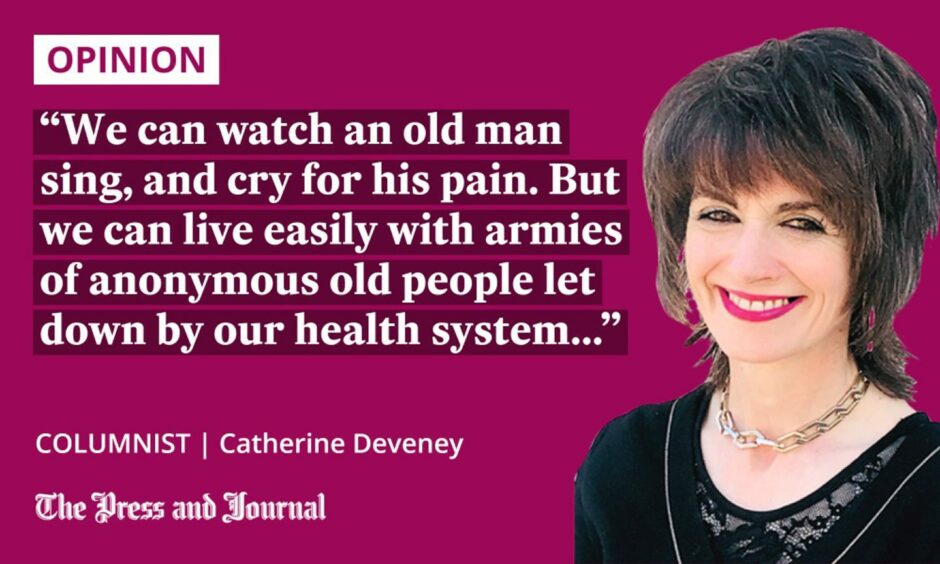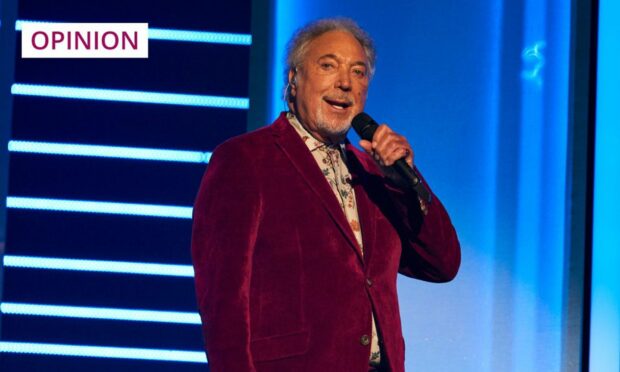“Anyone else just been broken by Tom Jones?” someone tweeted after Jones’s impassioned, and apparently impromptu, masterclass on television’s, The Voice last weekend.
Everyone who witnessed it, I imagine. At 81, the voice is incredible but it was the raw emotion – passion, soul, spirit, call it what you will – that poured from him as he sang a song dedicated to his late wife that was so spellbinding.
“Come walk with me and hold to my hand/Touch me, let me know I ain’t here by myself.”
Jones said he tries to choose songs that mean something to him and this clearly did. It was about being strong for someone you love, supporting them when they needed you most.

The empathy from the other judges – most of whom were close to tears – was about connecting to the grief of an elderly man who had always been able to fix things, but this time couldn’t.
The power of Jones’s performance was in the personal.
But the power of the song was in something more communal.
The power a song can hold
I had no idea how much the song would mean to me in the week that has followed. Jones’s fellow judge, singer Anne Marie, clearly felt the impact too.
Despite her youth, she empathised with a situation that was not yet entirely within her emotional experience.
In that moment, the song felt not so much like a personal tribute as an anthem for what society could be – if only we allowed ourselves to be driven by that kind of instinctive empathy rather than calculated self-interest.
I was worried about one of my loved ones when I heard Jones sing. The lyrics returned the next day when I called NHS 24.
Despite waiting 45 minutes to get through, I was blown away by the professionalism of the call handler; not just her immediate grasp of symptoms but also the unexpected tenderness of her responses.
Right now, the NHS is imbued with a brutal kind of despair.
I was very worried, I told her. With good reason, she replied. She didn’t scare me, but validated my concern. She wished the patient well. An ambulance arrived minutes later.
And here is where the depressing story of the crumbling NHS begins.
The wait in the queue of ambulances outside the hospital; the hours in corridors where elderly patients begged to go to the toilet but were ignored; the overnight stay in A&E because there were no beds.
The endless hours waiting, waiting, waiting, and then starting from scratch again. We surely all feel this hopelessness. Right now, the NHS is imbued with a brutal kind of despair.
Empathy makes all the difference
There were kind, compassionate staff, and there were rude, dismissive ones who hadn’t read the notes properly, who ignored the patient’s pain and said, “What’s with the ambulance?” like it was some histrionic personal indulgence rather than a clinical decision.
In the days that followed, it was striking what separated good staff from bad. The difference was the ability to feel – as Anne Marie did – something beyond personal experience.
The difference was not how much staff knew, but how much they cared.
Sometimes, we love imperfectly. But we are capable of love which makes the way society is organised baffling.
One doctor, when asked politely to lower the hard, uncomfortable examining table because the patient couldn’t do it herself, looked affronted, like she’d been asked to polish her shoes. She lowered it, but walked out without a word.
The lyrics rang around my head. “I will shadow the heat of your day/And I’ll drink from the sweat of your brow/I will walk to the tune of your song/But I won’t crumble with you if you fall.”
And I wished it were that way.
We watch Tom Jones but look away from others in pain
Years ago, when his wife was still alive, I interviewed Tom Jones, who said with a mischievous smile that it was Linda’s legs that first attracted him.
And his legendary infidelity?
Jones always refused to acknowledge his son from an affair. It was clear that day that sex was not to be confused with love. Acknowledge a son; lose a wife.
So, why did Linda love him? The question stumped him. “I don’t know what the hell it was to be honest with you,” he said.
Randomly put on #TheVoice and now I’m almost in tears at Tom Jones. What a voice he still has and 💔 about the story about his wife.
— Bionic Laura (@bioniclaura) September 3, 2022
Sometimes, we love imperfectly. But we are capable of love which makes the way society is organised baffling.
We can watch an old man sing, and cry for his pain. But we can live easily with armies of anonymous old people let down by our health system and our twisted political priorities; or watch hundreds of thousands of families thrown into hunger and fuel poverty while fat cats get fatter.
When Tom Jones sang, I grieved for him but also for all of us, because the sheer beauty of those lyrics reminded me how different the world could be if we applied them, not just to those we love personally but in our general attitudes.
“I’ll wake in the morning if you call/And I’ll stand beside you as long as I can/I will hold back the evening of your sun/ But I won’t crumble with you if you fall.”
Catherine Deveney is an award-winning investigative journalist, novelist and television presenter

Conversation